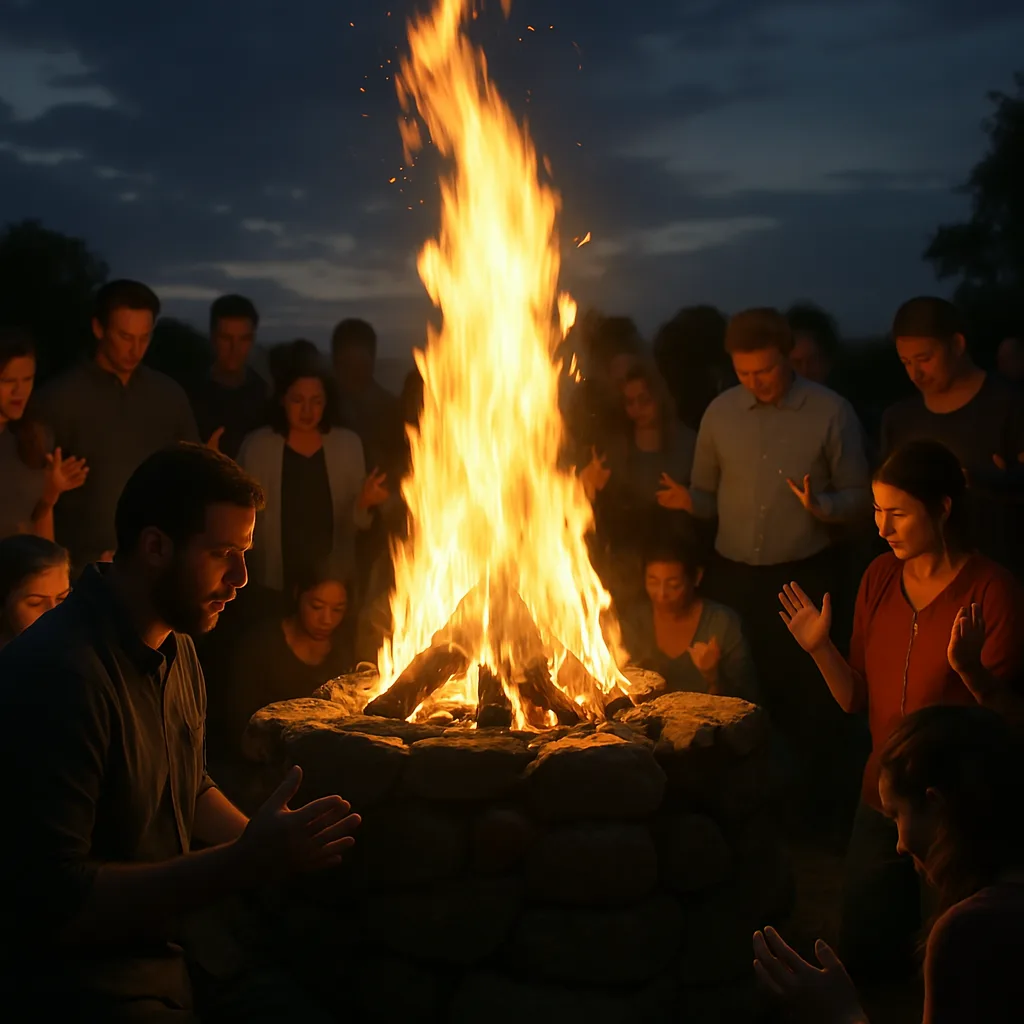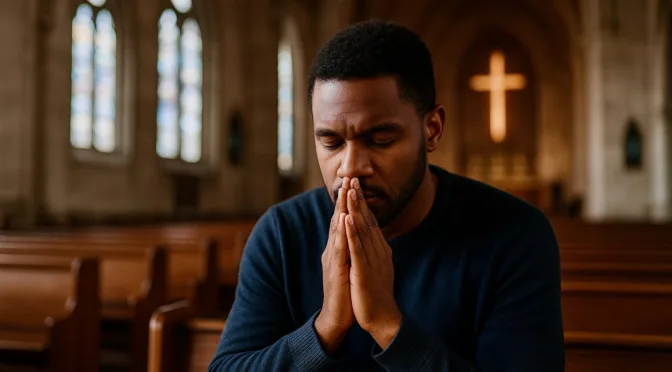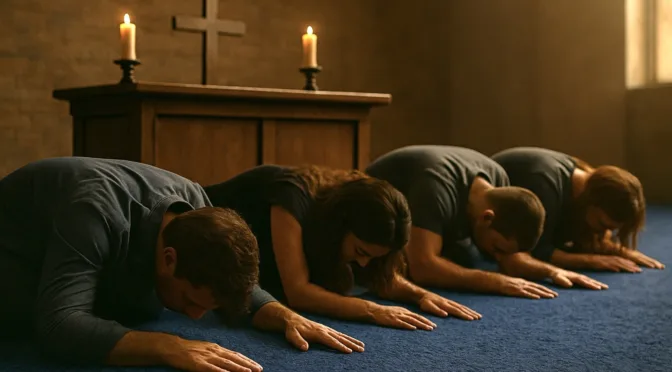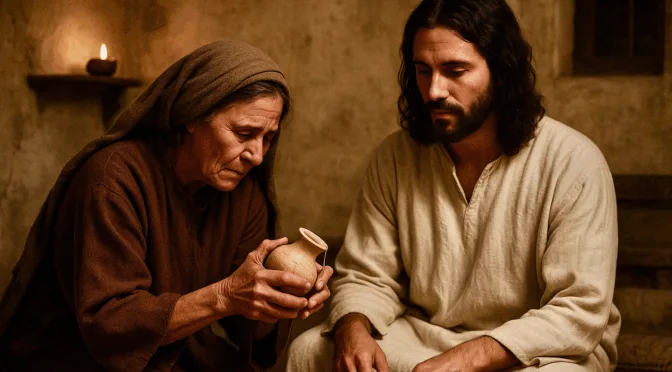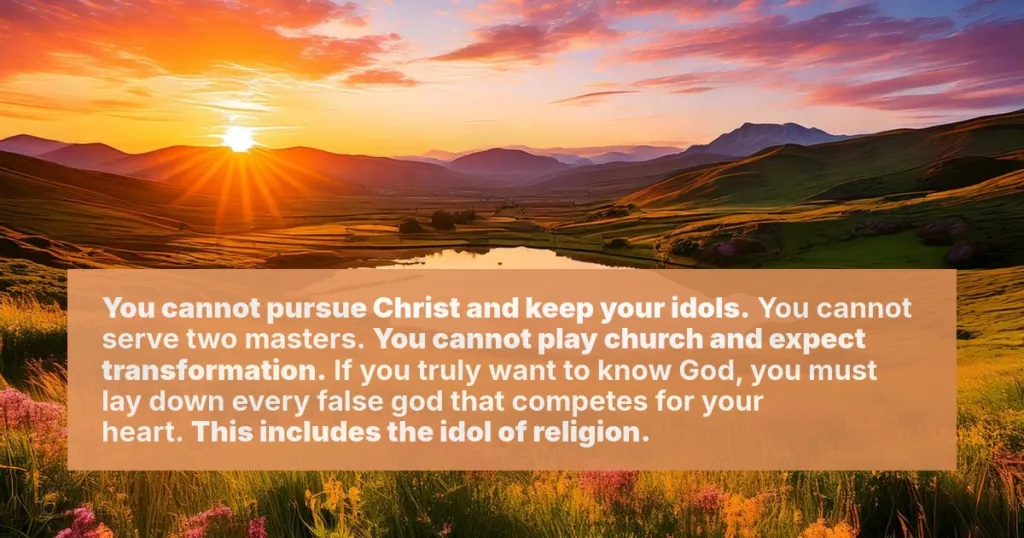Worship isn’t just about singing songs or showing up on time to church. It’s not a checklist of rituals or a performance to impress others. True worship is a heartfelt connection with God—a surrender to His will and an intentional pursuit of His presence. Whether you’re a worship leader or a member of the congregation, worship is about engaging with the Lord fully, loving Him with all your heart, and obeying His Spirit.
If you’re a worship leader, you’re not just picking songs; you’re leading people on a spiritual journey. Your role is to guide others into the presence of God, not just through music but through an encounter with the living God. The truth is, worship leadership requires total surrender to God’s direction. It’s about listening for His voice and obeying His leading—even if it means abandoning the carefully prepared song list and following where the Spirit moves.
The Heart of Worship Leadership: Following God’s Lead
Years ago, a worship leader shared a lesson that has stood the test of time. He would prepare a setlist of six to eight songs for each service. But more often than not, he wouldn’t even get past the first song before God redirected the worship. This is what true worship leadership looks like: yielding to God’s will instead of clinging to our own plans.
Scripture makes it clear that trusting in God’s direction is essential. Proverbs 3:5-6 (AMP) reminds us: “Trust in and rely confidently on the Lord with all your heart and do not rely on your own insight or understanding. In all your ways know and acknowledge and recognize Him, and He will make your paths straight and smooth.” As a worship leader, your “path” may be your setlist, but God may have other plans. Are you willing to follow Him?
When we surrender, God does incredible things. Worship becomes more than a list of songs; it becomes a dynamic and transformational experience that draws people into His presence.
Worship as a Spiritual Journey
Worship is meant to take us into the Holy of Holies, where we encounter the living God. Hebrews 10:19-22 (AMP) reminds us that, through Jesus, we have direct access to God’s presence:
“Let us approach [God] with a true and sincere heart in unqualified assurance of faith.”
As a worship leader, your calling is to lead others into this sacred space. This requires more than talent or preparation—it requires a heart that is fully engaged with God. You cannot lead others into God’s presence unless you dwell there yourself.
David’s example in 2 Samuel 6:14 shows us what this looks like. He danced before the Lord with all his might, completely unashamed and fully engaged in worship. David’s worship wasn’t about perfection or ritual; it was about pouring his whole heart out before God. As a worship leader, this is your example: worshiping with passion, authenticity, and complete surrender.
The Power of Surrendered Worship
True worship requires humility. Romans 12:1 (AMP) calls us to “present your bodies [dedicating all of yourselves, set apart] as a living sacrifice, holy and well-pleasing to God, which is your rational (logical, intelligent) act of worship.” Whether you’re leading worship or participating, God asks for the same thing: a heart that is fully surrendered to Him.
When we let go of our plans and trust God, He moves powerfully. Worship becomes less about us and more about Him. It becomes a declaration of His goodness, faithfulness, and power. It’s a moment where heaven touches earth, and the people of God encounter His presence.
Practical Tips for Worship Leaders
If You’re a Worship Leader, Here’s How You Can Engage in True, Spirit-Led Worship:
1. Pray over your preparation.
Before selecting a single song, seek God’s guidance. Ask Him what He wants to say and do through the worship. Prayer isn’t just preparation—it’s connection. Psalm 25:4-5 reminds us, “Let me know Your ways, O Lord; teach me Your paths. Guide me in Your truth and teach me, for You are the God of my salvation.” Approach your planning with a listening heart.
2. Remain flexible to the Holy Spirit.
A setlist is a helpful tool, but it’s not the destination. Be willing to abandon it entirely if the Holy Spirit takes the worship in a different direction. Proverbs 16:9 teaches us, “A man’s mind plans his way [as he journeys through life], but the Lord directs his steps and establishes them.” Stay sensitive, trusting that God knows exactly what the congregation needs in that moment.
3. Engage fully with God personally.
Worship leaders are not performers; they’re worshipers first. Before stepping onto the stage, spend time alone with God, soaking in His presence. Psalm 27:4 declares, “One thing I have asked of the Lord, and that I will seek: That I may dwell in the house of the Lord [in His presence] all the days of my life.” Let your private worship fuel your public leadership.
4. Be bold and vulnerable.
Worship with authenticity and passion. Show the congregation what it looks like to worship God with your whole heart, lifting hands, declaring truths, and pouring yourself out before Him. 2 Samuel 6:14 tells of King David dancing before the Lord with all his might. Don’t hold back—your vulnerability inspires others to go deeper in their worship.
5. Declare God’s truths over the congregation.
Worship isn’t just singing; it’s a time to proclaim God’s promises and character. Use spontaneous moments to speak life over the people, declaring truths like, “The Lord is faithful to His promises” (Psalm 145:13). Let your words align with His Word, encouraging faith and stirring hearts toward Him.
6. Pour yourself out as an offering.
Worship leading is not about conserving energy or protecting your image—it’s about giving everything you have to glorify God. Romans 12:1 calls us to “present your bodies [dedicating all of yourselves, set apart] as a living sacrifice, holy and well-pleasing to God, which is your rational act of worship.” Leave nothing behind; pour yourself out completely.
7. Stay focused on God.
It’s easy to get caught up in the technical aspects of worship—transitions, timing, or the congregation’s response. But worship isn’t about you, the music, or even the people; it’s about Him. John 3:30 reminds us, “He must increase [in prominence], but I must decrease.” Fix your eyes on Jesus and invite others to do the same.
8. Take the congregation on a spiritual journey.
Your role is to guide the people into the presence of God—not just through songs but through surrender. Worship is a journey into the Holy of Holies (Hebrews 10:19-22). Lead them with intentionality, creating space for them to encounter God personally.
9. Be ready for the unexpected.
Sometimes God moves in ways you didn’t plan—a spontaneous prayer, lingering on a single song, or a moment of silence. Trust these moments and lean into them. Isaiah 55:8 reminds us, “For My thoughts are not your thoughts, nor are your ways My ways,” declares the Lord. Surrender your plans for His.
10. Model intimacy with God.
Worship leaders have the privilege of showing others what it looks like to pursue God passionately. Let your worship be genuine, not performance-driven. As Psalm 42:1 says, “As the deer pants [longingly] for the water brooks, so my soul pants [longingly] for You, O God.” Show the congregation what it means to long for Him.
In today’s world, worship leaders often rely on various tools—projections, planning apps, click tracks, or in-ear monitors—to create a seamless worship experience. These tools can be helpful, but they must never dictate or limit your worship. If God is leading you in a direction that your tools don’t easily accommodate, follow Him anyway. Worship isn’t about perfection or technical execution; it’s about obedience and connection with the Lord.
IT tools and resources should support your worship, not control it. For example:
- If the Spirit moves and the planned song isn’t resonating, don’t hesitate to switch mid-service—even if the slides aren’t ready.
- If a spontaneous moment of prayer or prophetic declaration arises, don’t let the countdown timer (or that darn wall clock) stop you.
- If the click track becomes a distraction, don’t be afraid to turn it off and trust your team’s instincts.
Psalm 46:10 reminds us, “Be still and know [recognize, understand] that I am God.” Worship is a divine encounter, not a production. It requires sensitivity to the Holy Spirit, not reliance on technology.
The tools we use are practical aids, but they must never take the place of listening to God. If you feel God leading you to linger on a song, pause in silence, or shift direction entirely, trust Him—even if the tools and systems can’t keep up. Worship is about responding to Him in spirit and truth (John 4:24), not sticking to a script.
Stay Spirit-led, not tool-led. When you prioritize obedience to God over the convenience of your tools, He will bless your faithfulness and move in ways that technology never could.
Conclusion: Surrender Your Worship to God
True worship is a journey of surrender, obedience, and intimacy with God. Whether you’re leading worship or participating in the congregation, the calling is the same: engage with the Lord fully, trust His direction, and pour your whole heart into worship. When you let go of your plans and follow His Spirit, worship becomes alive, transformational, and deeply meaningful.
Prayer
Father, we surrender our worship to You. Teach us to listen to Your voice, trust Your leading, and respond with obedience. For those who lead, give them sensitive hearts and bold faith to guide others into Your presence. Let every moment of worship be a reflection of our love and devotion to You. In Jesus’ name, Amen.
See Also
